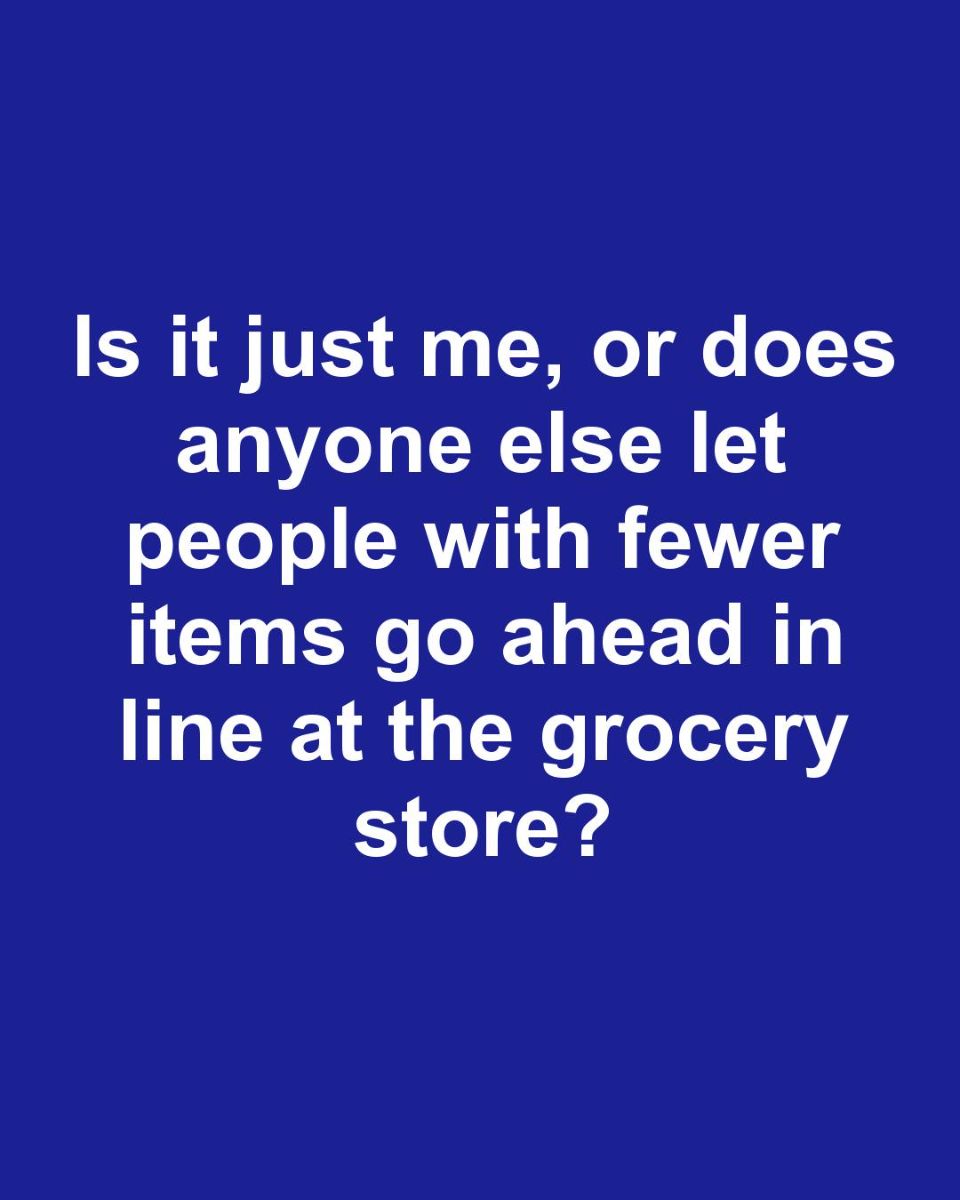Is it just me?
Georgia Lynn
Contributing Writer
Print this recipe
In the hustle and bustle of everyday life, grocery shopping is a routine task that most of us undertake weekly, if not more frequently. The grocery store line can be a source of stress, especially during peak hours when lines stretch down the aisles. In these moments, a common dilemma arises: should you let someone with fewer items go ahead of you in line? This seemingly small decision can have a ripple effect on the shopping experience, both for you and the other person. This article explores the nuances of this decision, examining why some people choose to let others go ahead and the broader implications of such actions.
The Social Norms of Grocery Shopping
Grocery shopping is governed by a set of unwritten social norms that dictate how we interact with others in the store. These norms include basic courtesies like not blocking the aisle, returning carts to their designated areas, and, for some, allowing those with fewer items to skip ahead in line. This practice, while not universally followed, is often seen as a gesture of goodwill and efficiency. It reflects a social contract where individuals prioritize collective convenience over personal gain. Understanding these norms helps us navigate the social landscape of the grocery store more effectively.
Understanding the Psychology Behind Letting Others Go First
The decision to let someone with fewer items go ahead in line is often rooted in psychological principles such as empathy, altruism, and social reciprocity. Empathy allows us to put ourselves in the shoes of others, imagining their relief at a shorter wait time. Altruism drives us to act in the interest of others, even at a minor cost to ourselves. Social reciprocity suggests that by doing a good deed, we might expect similar kindness in return. These psychological factors combine to influence our behavior in line, often leading us to prioritize the needs of others over our own.
The Benefits of Being Considerate in Line
Being considerate in line at the grocery store can have several benefits. For the person allowed to go ahead, it can mean a quicker shopping experience and a positive interaction that brightens their day. For the person extending the courtesy, it can lead to a sense of satisfaction and fulfillment from helping others. Additionally, such acts can foster a sense of community and goodwill, encouraging others to pay it forward. In a broader sense, these small acts of kindness contribute to a more positive and cooperative society.
Cultural Perspectives on Queue Etiquette
Queue etiquette varies significantly across cultures, influencing how people perceive and engage in line-related interactions. In some cultures, strict adherence to the order of arrival is paramount, while others may prioritize efficiency and flexibility. For instance, in the UK, queuing is almost a national pastime, with strict adherence to the order of arrival. In contrast, some Mediterranean cultures may adopt a more relaxed approach, where the concept of letting someone with fewer items go ahead is more common. Understanding these cultural differences can help us navigate international grocery shopping experiences with greater ease and respect.
Personal Stories and Anecdotes from Shoppers
Many shoppers have personal stories about times they’ve let someone go ahead in line or been the beneficiary of such kindness. One shopper recalls a time when they were in a rush to pick up their child and a kind stranger let them skip ahead, saving precious minutes. Another shares how a simple gesture of letting a stressed parent with a crying baby go first turned a hectic day into a more manageable one. These anecdotes highlight the human element of grocery shopping and the impact of small acts of kindness on our daily lives.
The Role of Empathy and Patience in Everyday Situations
